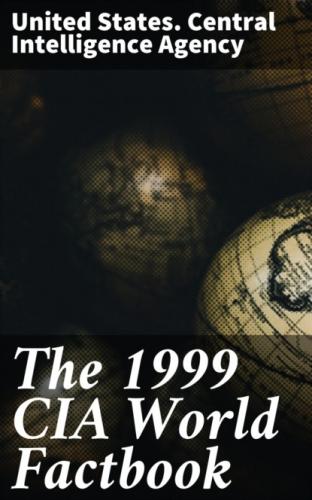chief of state: President Antonio MASCARENHAS Monteiro (since 22
March 1991)
head of government: Prime Minister Carlos Alberto Wahnon de Carvalho
VEIGA (since 13 January 1991)
cabinet: Council of Ministers appointed by the president on the
recommendation of the prime minister from among the members of the
National Assembly
elections: president elected by popular vote for a five-year term;
election last held 18 February 1996 (next to be held NA February
2001); prime minister nominated by the National Assembly and
appointed by the president
election results: Antonio MASCARENHAS Monteiro elected president;
percent of vote—Antonio MASCARENHAS Monteiro (independent) 80.1%
Legislative branch: unicameral National Assembly or Assembleia
Nacional (72 seats; members are elected by popular vote to serve
five-year terms)
elections: last held 17 December 1995 (next to be held NA 2000)
election results: percent of vote by party—MPD 59%, PAICV 28%, PCD
6%; seats by party—MPD 50, PAICV 21, PCD 1
Judicial branch: Supreme Tribunal of Justice or Supremo Tribunal
de Justia
Political parties and leaders: Movement for Democracy or MPD
Eurico MONTEIRO, president]; Party of Work and Solidarity or PTS
International organization participation: ACCT, ACP, AfDB, CCC,
ECA, ECOWAS, FAO, G-77, IBRD, ICAO, ICFTU, ICRM, IDA, IFAD, IFC,
IFRCS, ILO, IMF, IMO, Intelsat, Interpol, IOC, IOM (observer), ITU,
NAM, OAU, OPCW, UN, UNCTAD, UNESCO, UNIDO, UPU, WCL, WHO, WIPO, WMO,
WTrO (applicant)
Diplomatic representation in the US:
chief of mission: Ambassador Ferdinand Amilcar Spencer LOPES
chancery: 3415 Massachusetts Avenue NW, Washington, DC 20007
consulate(s) general: Boston
Diplomatic representation from the US:
chief of mission: Ambassador Lawrence Neal BENEDICT
embassy: Rua Abilio Macedo 81, Praia
mailing address: C. P. 201, Praia
Flag description: three horizontal bands of light blue (top, double width), white (with a horizontal red stripe in the middle third), and light blue; a circle of 10 yellow five-pointed stars is centered on the hoist end of the red stripe and extends into the upper and lower blue bands
Economy
Economy—overview: Cape Verde's low per capita GDP reflects a poor natural resource base, including serious water shortages exacerbated by cycles of long-term drought. The economy is service-oriented, with commerce, transport, and public services accounting for almost 70% of GDP. Although nearly 70% of the population lives in rural areas, the share of agriculture in GDP in 1995 was only 8%, of which fishing accounts for 1.5%. About 90% of food must be imported. The fishing potential, mostly lobster and tuna, is not fully exploited. Cape Verde annually runs a high trade deficit, financed by foreign aid and remittances from emigrants; remittances constitute a supplement to GDP of more than 20%. Economic reforms, launched by the new democratic government in 1991, are aimed at developing the private sector and attracting foreign investment to diversify the economy. Prospects for 1999 depend heavily on the maintenance of aid flows, remittances, and the momentum of the government's development program.
GDP: purchasing power parity—$581 million (1998 est.)
GDP—real growth rate: 7% (1998 est.)
GDP—per capita: purchasing power parity?$1,450 (1998 est.)
GDP—composition by sector: agriculture: 8% industry: 18% services: 74% (1996 est.)
Population below poverty line: NA%
Household income or consumption by percentage share:
lowest 10%: NA%
highest 10%: NA%
Inflation rate (consumer prices): 4.3% (1998)
Labor force: NA
Unemployment rate: NA %
Budget:
revenues: $188 million
expenditures: $228 million, including capital expenditures of $116
million (1996)
Industries: food and beverages, fish processing, shoes and
garments, salt mining, ship repair,
Industrial production growth rate: NA%
Electricity—production: 40 million kWh (1996)
Electricity—production by source: fossil fuel: 100% hydro: 0% nuclear: 0% other: 0% (1996)
Electricity—consumption: 40 million kWh (1996)
Electricity—exports: 0 kWh (1996)
Electricity—imports: 0 kWh (1996)
Agriculture—products: bananas, corn, beans, sweet potatoes, sugarcane, coffee, peanuts; fish
Exports: $43 million (f.o.b., 1997 est.)
Exports—commodities: shoes, garments, fish, bananas, hides,
Exports—partners: Portugal, Germany, Spain, France, UK, Malaysia
Imports: $215 million (f.o.b., 1997 est.)
Imports—commodities: foodstuffs, consumer goods, industrial products, transport equipment, fuels
Imports—partners: Portugal 25%, Netherlands, France, UK, Spain, US
Debt—external: $220 million (1998)
Economic aid—recipient: $111.3 million (1995)
Currency: 1 Cape Verdean escudo (CVEsc) = 100 centavos
Exchange rates: Cape Verdean escudos (CVEsc) per US$1—96.400 (November 1998), 99.41 (1998), 93.177 (1997), 82.591 (1996), 76.853 (1995), 81.891 (1994)
Fiscal year: calendar year
Communications
Telephones: 22,900 (1995 est.)
Telephone system:
domestic: interisland microwave radio relay system with both analog
and digital exchanges; work is in progress on a submarine
fiber-optic cable system which was scheduled for completion in 1998
international: 2 coaxial submarine cables; HF radiotelephone to
Senegal and Guinea-Bissau; satellite earth station—1 Intelsat
(Atlantic Ocean)
Radio broadcast stations: AM 1, FM 6, shortwave 0 (1998)
Radios: NA
Television broadcast stations: 1 (1997 est.)
Televisions: 7,000 (1991 est.)
Transportation
Railways: 0 km
Highways: total: 1,100 km paved: 858 km unpaved: 242 km (1996 est.)
Ports and harbors: Mindelo, Praia, Tarrafal
Merchant marine:
total: 4 ships (1,000 GRT or over) totaling 9,620 GRT/13,920 DWT
ships by type: cargo
